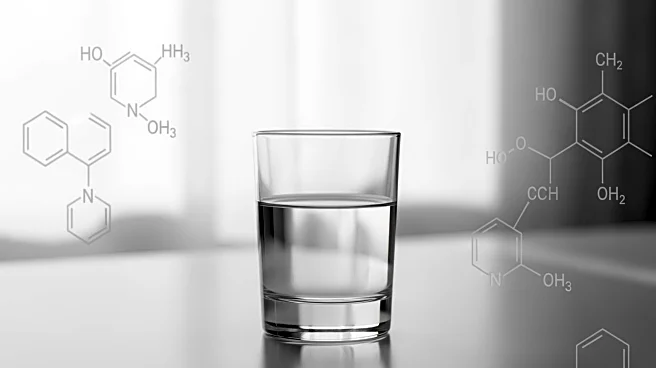What's Happening?
The European Chemicals Agency (ECHA) is evaluating the potential carcinogenic effects of ethanol, a common ingredient in cleaning products and hand sanitizers. An internal recommendation from one of ECHA's
working groups has flagged ethanol as a toxic substance that may increase the risk of cancer and pregnancy complications. The ECHA's Biocidal Products Committee is scheduled to meet from November 25 to November 28 to discuss the matter further. If the committee concludes that ethanol is carcinogenic, it will recommend its substitution in products. The final decision will be made by the European Commission. Despite these concerns, the World Health Organization currently classifies ethanol and isopropanol as safe for hand hygiene.
Why It's Important?
The potential ban on ethanol could have significant implications for industries reliant on this chemical, particularly in the production of cleaning products and hand sanitizers. A ban could lead to increased costs for manufacturers as they seek alternative substances, potentially affecting product availability and pricing. This decision could also influence public health policies and consumer safety standards across Europe and possibly beyond, given the widespread use of ethanol in various products. Companies may need to invest in research and development to find safe and effective substitutes, impacting their operational strategies and financial performance.
What's Next?
The ECHA's Biocidal Products Committee will convene in late November to assess the carcinogenic potential of ethanol. Depending on the committee's findings, the European Commission will make a final decision on whether to ban or restrict the use of ethanol in products. This decision could prompt reactions from manufacturers, public health officials, and consumer advocacy groups, who may push for clarity on safe alternatives and potential regulatory changes. Companies may begin preparing for possible shifts in product formulations and supply chain adjustments.
Beyond the Headlines
The consideration of an ethanol ban highlights broader issues related to chemical safety and regulatory practices in the EU. It underscores the importance of ongoing scientific research and risk assessment in shaping public health policies. The situation also raises questions about the balance between consumer safety and industry interests, as well as the role of international organizations like the World Health Organization in influencing regional regulatory decisions.









